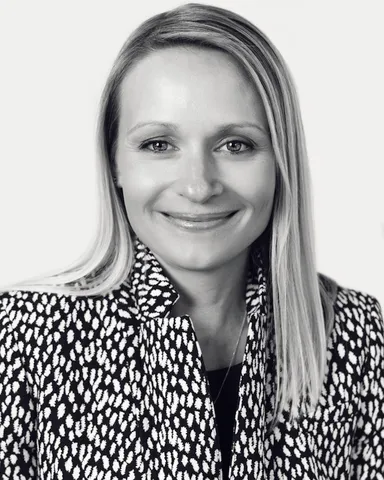While inflation has cooled somewhat in recent months, leaders at the Federal Reserve are still likely to keep interest rates higher for longer. Rates therefore remain top of mind for finance chiefs not only when it comes to considering how to balance current costs, but in determining future business plans.
While current high rates have not impacted the day-to-day business at insurtech firm Quility, for example, they are “definitely something, just as we look at other levers we want to pull, that we’re keeping an eye on,” CFO Jennifer Yaross said in an interview.
“When I think about that, from more just the general, running a business perspective, it's how you think about access to liquidity,” Yaross said of high rates. “It's how you think about the M&A market and what that means, and so those are all factors that we're keeping an eye on.”
Taking a dynamic approach
Yaross took the top financial seat at the Swannanoa, North Carolina-based Quility in September, following a 15-year tenure at Nationwide Insurance where she previously served in a number of financial roles including VP, CFO corporate development and strategy, according to her LinkedIn profile. Prior to Nationwide, she started her career as an audit manager at Deloitte.
Operating within today’s macroeconomic environment requires a notable shift in the way CFOs think of risk — for starters, “cash in the account is a lot more meaningful than it used to be,” Yaross said.

“So it's definitely a change in mindset, and it changes the risk profile, frankly, that folks are, interested in where to put their money to work, because you can find very stable, very secure places that can earn a wonderful return now,” she said. “And so I think that that definitely puts pressure on any sort of riskier opportunity.”
It’s also important to understand the impact of macroeconomic trends on a business is dynamic; it’s not as simple as, one factor moves and “therefore the insurance sales market moves in this direction,” she said.
Take inflation, for example: "Is it helping people to understand that they have less at their disposal and therefore making choices about whether or not they can afford the insurance product?” she said. “Or is it actually bringing to light the importance of the financial stability, and therefore encouraging them more towards wanting to purchase those products?”
Creating a systematic report cadence
When it comes to prioritizing new projects at the business, the insurtech is looking past the current environment to ensure they are well-positioned for the future, Yaross said.
“It's not as much the short term environment that is driving our own decision making but more where do we see the opportunity to bring value to that market?” she said.
As CFO, Yaross is juggling the needs of Quility as a growing business, as well as how new technologies such as artificial intelligence are changing the insurtech industry. As well as ensuring they are approaching and cultivating data in a forward-thinking way, “AI is another critical piece” the company is thinking about when it comes to building out and expanding its agency model, she said.
“There's always opportunities in how we make the day-to-day lives of our employees that much more efficient, so that, they're spending their time advising and thinking through more of those strategic decisions, and maybe not having to do some of the day-to-day tasks that aren't the most enjoyable to them,” she said of how the business is thinking about leveraging technology.
As the insurtech looks to expand, Yaross is also drawing on her past experiences at Nationwide to help shift some of the internal processes, such as determining what a more systematic reporting cadence would look like for the expanding entity. Her time at Nationwide also made her very effective at working across different departments and parts of the business, “and I was able to bring that to [this] organization,” she said.













